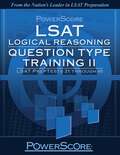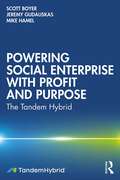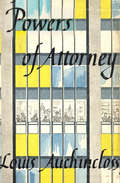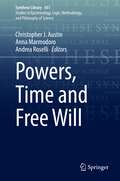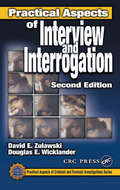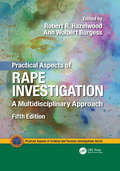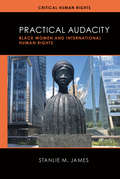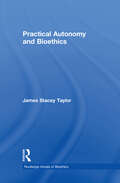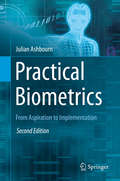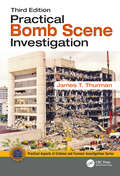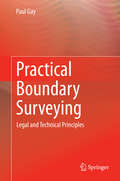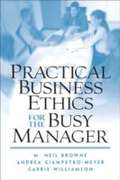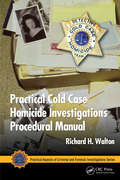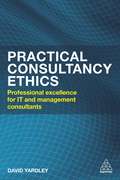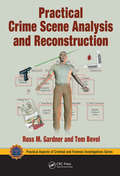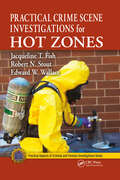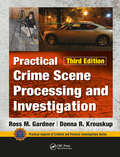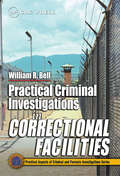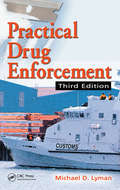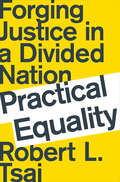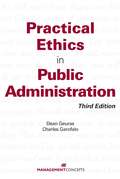- Table View
- List View
PowerScore LSAT: Logical Reasoning Question Type Training Vol. 2
by David M. Killoran Steven G. SteinLSAT Logical Reasoning Question Type Training, Volume 2 by PowerScore is a book where you will find every Logical Reasoning question from LSAT PrepTests 21 through 40, arranged in groups according to the classification system used in the renowned PowerScore LSAT Logical Reasoning Bible.
Powering Social Enterprise with Profit and Purpose: The Tandem Hybrid
by Scott Boyer Jeremy Gudauskas Mike HamelTrail-blazing social entrepreneurs are tackling the world’s most pressing problems that government, business, or charity have failed to solve. They are creating businesses with a primary mission of social change. Scott Boyer is one such social entrepreneur. This 28-year veteran of Big Pharma left a six-figure salary to start OWP Pharmaceuticals and the ROW Foundation. This commercial business and non-profit organization exist in a symbiotic relationship we call a "tandem hybrid social enterprise." This model combines a multimillion dollar business with a foundation that’s on track to become the largest funder of projects serving people with epilepsy and associated psychiatric disorders in the world. The tandem hybrid incorporates the principles learned by Scott and others for building a truly unique social enterprise from the ground up; one that is: Driven by a compelling social mission Financed by commercial success Structured to retain control Scalable and sustainable for the long haul Powering Social Enterprises With Profit And Purpose offers a detailed blueprint that has proven commercially and philanthropically successful and that can be replicated in most business sectors.
Powering Social Enterprise with Profit and Purpose: The Tandem Hybrid
by Scott Boyer Jeremy Gudauskas Mike HamelTrail-blazing social entrepreneurs are tackling the world’s most pressing problems that government, business, or charity have failed to solve. They are creating businesses with a primary mission of social change. Scott Boyer is one such social entrepreneur. This 28-year veteran of Big Pharma left a six-figure salary to start OWP Pharmaceuticals and the ROW Foundation. This commercial business and non-profit organization exist in a symbiotic relationship we call a "tandem hybrid social enterprise." This model combines a multimillion dollar business with a foundation that’s on track to become the largest funder of projects serving people with epilepsy and associated psychiatric disorders in the world.The tandem hybrid incorporates the principles learned by Scott and others for building a truly unique social enterprise from the ground up; one that is: Driven by a compelling social mission Financed by commercial success Structured to retain control Scalable and sustainable for the long haul Powering Social Enterprises With Profit And Purpose offers a detailed blueprint that has proven commercially and philanthropically successful and that can be replicated in most business sectors.
Powers of Attorney
by Louis AuchinclossTales that take you behind the scenes of a powerful New York law firm, from the New York Times–bestselling author of The Partners. Ambition, jealousy, desire, hatred, deceit—they&’re all there inside the Wall Street law offices of Tower, Tilney & Webb, the setting for these interwoven stories set in the 1960s from Louis Auchincloss, who practiced law while also writing acclaimed and bestselling fiction. Senior partner Clitus Tilney is not about to let a detestable, hard-drinking partner make a mockery of all he&’s worked for. Harry Reilley is a clerk who pines for Tilney&’s daughter. Jake Platt is an associate willing to do whatever it takes to achieve his goals, including setting a rival up for failure. Rutherford Tower struggles with the fact that he owes his position with the firm to nepotism and not hard work. And then there&’s Mrs. Abercrombie, who&’s waiting for her sixty-fifth birthday, when she plans to retire—and get her revenge. These twelve linked stories capture the struggles, rivalries, victories, disappointments, and compromises in the day-to-day lives of lawyers, and a portrait of professional men and women in mid-century New York.
Powers, Time and Free Will (Synthese Library #451)
by Anna Marmodoro Christopher J. Austin Andrea RoselliThis book brings together twelve original contributions by leading scholars on the much-debated issues of what is free will and how can we exercise it in a world governed by laws of nature. Which conception of laws of nature best fits with how we conceive of free will? And which constraints does our conception of the laws of nature place on how we think of free will? The metaphysics of causation and the metaphysics of dispositions are also explored in this edited volume, in relation to whether they may or may not be game-changers in how we think about both free will and the laws of nature. The volume presents the views of a range of international experts on these issues, and aims at providing the reader with novel approaches to a core problem in philosophy. The target audience is composed by academics and scholars who are interested in an original and contemporary approach to these long-debated issues.Chapters [2] and [4] are available open access under a Creative Commons Attribution 4.0 International License via link.springer.com.
Practical Aspects of Interview and Interrogation (ISSN)
by Shane G. Sturman L. Wayne Hoover David E. Zulawski Douglas E. WicklanderBuilding on the foundation of the bestselling first edition, Practical Aspects of Interview and Interrogation, Second Edition expands its coverage to include discussions of false confessions, telephone interviewing, field interviewing, sexual harassment interviewing, confronting the alleged harasser, pre-employment interviewing, new legal aspects, juvenile interviewing, common mistakes, and frequently asked questions. Useful in both the law enforcement and private sectors, this work allows readers to deal effectively with the complex problems of interviewing and interrogating victims, witnesses, suspects, and even prospective employees.
Practical Aspects of Rape Investigation: A Multidisciplinary Approach, (Practical Aspects of Criminal and Forensic Investigations)
by Robert R. Hazelwood Ann BurgessThe latest sixth edition of Practical Aspects of Rape Investigation is a fully updated, comprehensive volume on investigative procedures and victim-oriented case management for professionals assisting victims of rape and sexual assault.Rape and sexual assault cases have a devastating societal impact, particularly among the vulnerable populations most affected, including women, children, the elderly, minorities, and members of the LGBTQ+ communities. Such cases are all too common and, unfortunately, the number of cases continues to rise. As such, the need for a current reference on the topic has never been more pressing.Edited by Ann Wolbert Burgess—the subject of Hulu’s 2024 documentary series Mastermind: To Think Like a Killer, and an internationally recognized researcher and pioneer in the assessment and treatment of victims of trauma and abuse—this book covers various topics contributed to by experts from a broad range of fields. Leading academics, researchers, and investigative professionals address the problem of rape and sexual assault holistically, focusing on the core principles of real-world investigative techniques, behavioral profiling, investigative strategies and techniques, social worker involvement, and victimology.When a rape case goes undetected or unreported, a violent offender remains on the streets with the opportunity to reoffend—often repeatedly. Because victims are frequently reluctant to speak out or act in such cases, this book aims to raise awareness and, ultimately, decrease the number of silent victims and improve rape-investigative capabilities and outcomes.Practical Aspects of Rape Investigation, Sixth Edition provides the essential tools and techniques for professionals to best serve, and advocate for, victims. It continues to serve as an invaluable reference for students, legal professionals, and case managers, and as a blueprint for investigators and law enforcement professionals on case management best practices.
Practical Aspects of Rape Investigation: A Multidisciplinary Approach, Fifth Edition (Practical Aspects of Criminal and Forensic Investigations)
by Ann Wolbert Burgess Robert R. HazelwoodThis latest edition addresses rape and sexual assaults from all clinical, pathological, medical, and legal aspects. The book focuses on the victim and covers contemporary issues in sexual violence, investigative aspects of rape and sexual assault, offender fantasy, the personality of the offender, collection of evidence, medical examinations, and treatment, as well as trial preparation issues. Special topics include pedophiles, female and juvenile offenders, drug-facilitated rape, sexual sadism, elder abuse, and sexual assault within the military.
Practical Audacity: Black Women and International Human Rights (Critical Human Rights)
by Stanlie M. JamesGoler Teal Butcher (1925–93), a towering figure in international human rights law, was a scholar and advocate who advanced an intersectional approach to human empowerment influenced by Black women’s intellectual traditions. Practical Audacity follows the stories of fourteen women whose work honors and furthers Butcher’s legacy. Their multilayered and sophisticated contributions have critically reshaped human rights scholarship and activism—including their major role in developing critical race feminism, community-based applications, and expanding the boundaries of human rights discourse. Stanlie M. James weaves narratives by and about these women throughout the history of the field, illustrating how they conceptualize, develop, and implement human rights. By centering the courage and innovative interventions of capable and visionary Black women, she places them rightfully alongside such figures as Thurgood Marshall and Charles Hamilton Houston. This volume fundamentally shifts the frame through which human rights struggles are understood, illuminating how those who witness and experience oppression have made some of the biggest contributions to building a better world.
Practical Audacity: Black Women and International Human Rights (Critical Human Rights)
by Stanlie M. JamesGoler Teal Butcher (1925–93), a towering figure in international human rights law, was a scholar and advocate who advanced an intersectional approach to human empowerment influenced by Black women’s intellectual traditions. Practical Audacity follows the stories of fourteen women whose work honors and furthers Butcher’s legacy. Their multilayered and sophisticated contributions have critically reshaped human rights scholarship and activism—including their major role in developing critical race feminism, community-based applications, and expanding the boundaries of human rights discourse. Stanlie M. James weaves narratives by and about these women throughout the history of the field, illustrating how they conceptualize, develop, and implement human rights. By centering the courage and innovative interventions of capable and visionary Black women, she places them rightfully alongside such figures as Thurgood Marshall and Charles Hamilton Houston. This volume fundamentally shifts the frame through which human rights struggles are understood, illuminating how those who witness and experience oppression have made some of the biggest contributions to building a better world.
Practical Autonomy and Bioethics (Routledge Annals of Bioethics)
by James Stacey TaylorThis is the first volume in which an account of personal autonomy is developed that both captures the contours of this concept as it is used in social philosophy and bioethics, and is theoretically grounded in, and a part of, contemporary autonomy theory. James Stacey Taylor’s account is unique as it is explicitly a political one, recognizing that the attribution of autonomy to agents is dependent in part on their relationships with others and not merely upon their own mental states. The volume is distinctive in its examples, which touch on the ethics of using inducements to encourage persons to participate in medical research, the ethical issues associated with the use of antibiotics, and the ethical basis for both patient confidentiality and informed consent.
Practical Biometrics
by Julian AshbournThis practically-focused text presents a hands-on guide to making biometric technology work in real-life scenarios. Extensively revised and updated, this new edition takes a fresh look at what it takes to integrate biometrics into wider applications. An emphasis is placed on the importance of a complete understanding of the broader scenario, covering technical, human and implementation factors. This understanding may then be exercised through interactive chapters dealing with educational software utilities and the BANTAM Program Manager. Features: provides a concise introduction to biometrics; examines both technical issues and human factors; highlights the importance of a broad understanding of biometric technology implementation from both a technical and operational perspective; reviews a selection of freely available utilities including the BANTAM Program Manager; considers the logical next steps on the path from aspiration to implementation, and looks towards the future use of biometrics in context.
Practical Bomb Scene Investigation (Practical Aspects of Criminal and Forensic Investigations)
by James T. ThurmanNow in its Third Edition, Practical Bomb Scene Investigation explores the investigative process that improvised explosive device (IED) specialists undertake at the scene of an explosion. Providing easy-to-understand, step-by-step procedures for managing and processing a bomb scene, it enables investigators to find the evidence and then make sense of what is found. The book is not only a roadmap on how to find and collect evidence and assess the scene, but also provides instruction on identifying the bombmaker's signature through latent print, DNA, explosive residue, metallurgical, and toolmark examination and forensic analysis.
Practical Boundary Surveying
by Paul GayThis complete guide to boundary surveying provides landowners, land surveyors and students with the necessary foundation to understand boundary surveying techniques and the common legal issues that govern boundary establishment. Far from a simple engineering function, boundary establishment is often a difficult and delicate matter, with real monetary and legal ramifications if not accomplished accurately. This book helps readers to understand why such challenges exist and what remedies may be available. Using only simple and logically explained mathematics, the principles and practice of boundary surveying are demystified for those without prior experience and the focused coverage of pivotal issues such as easements and setting lot corners will aid even licensed practitioners in untangling thorny cases. Practical advice on using both basic and advanced instruments is included, alongside clear explanations of legal regulations that will impact any surveyor's work. For those who desire a more in-depth treatment of the mathematical aspects of boundary surveying, the Appendix includes the underlying theory and many examples of typical calculations performed by boundary surveyors.
Practical Business Ethics For The Busy Manager
by M. Neil Browne Andrea Giampetro-Meyer Carrie WilliamsonWith a conversational writing style, rather than the language of formal ethical theories, this short, readable book suggests to its readers that they should plan how be better business people than they would otherwise be. It contains a common sense, practical approach to doing good work—emphasizing the need to prepare in advance for ethical dilemmas, long before they arise. KEY TOPICS Chapter topics cover American corporate and organizational culture, identifying personal values, moral mentors, getting the facts necessary for good work, determining the issue that requires good work, locating the relevant law, identifying the alternative options, and applying personal ethical principles to doing good work. For business people—and people who will one day be business people—who want to make a difference in business practice and improve behavior in their selves and business environment.
Practical Cold Case Homicide Investigations Procedural Manual (ISSN)
by Richard H. WaltonDesigned for use by investigators in any agency, large or small, Practical Cold Case Homicide Investigations Procedural Manual provides an overview of the means and methods by which previously reported and investigated yet unresolved homicides might be solved. Written by an experienced cold case investigator and consultant, this convenient handbook
Practical Consultancy Ethics: Professional Excellence for IT and Management Consultants
by David YardleyConsultants - working for an organization but not as part of it - are particularly subject to commercial pressures from both their employers and their clients, never more so than when consulting on complex and costly IT engagements. A consultant's reputation is crucial to their professional capital, and they have to be able to make defensible decisions that protect this reputation whilst delivering value for the client. This means acting ethically, responsibly and commercially. Practical Consultancy Ethics approaches the subject of ethics from the individual's perspective: the management or IT consultant who will need to make ethical decisions within their engagement. With clear-sighted identification of the ethical dilemmas that may arise at each stage of a consultancy project - from defining the problem to fit the solution, through to prioritizing competing stakeholder needs, and having access to confidential client information - and guidance on ethical and risk-reducing actions that consultants can take, the emphasis throughout is on improved decision-making. Enhanced with case studies showcasing real-life ethical pitfalls and featuring consultancy ethical dilemmas to challenge the reader, this is a uniquely practical guide to applying best ethical practice in consulting engagements.
Practical Crime Scene Analysis and Reconstruction (ISSN)
by Ross M. Gardner Tom BevelThis book addresses every aspect of the analysis and reconstruction of the events surrounding a crime. Beginning with established protocols for crime scene processing, the authors outline their unique methodology for event analysis. This technique defines specific actions, discusses the order of those actions, and offers significant insight into determining what did or did not happen in the course of the incident under investigation. Using case studies and more than 200 color photos, the book demonstrates how the method can be used to explain clues that would otherwise be puzzling or ambiguous.
Practical Crime Scene Investigations for Hot Zones (ISSN)
by Jacqueline T. Fish Robert N. Stout Edward WallaceThe work of crime scene investigators (CSIs) is made more complicated when the scene is contaminated by either chemical, biological, radiological, nuclear, explosives (CBRNE) or toxic industrial chemicals (TICs). Special considerations must be observed when working at such scenes, whether they are the result of acts of terrorism, accidents, or natural disasters. This volume is a comprehensive reference containing guidelines and best practices for keeping CSIs safe and conducting a thorough crime scene investigation in these deadly environments. Protocols are provided for how to best identify, document, collect, and preserve physical evidence.
Practical Crime Scene Processing and Investigation (Practical Aspects of Criminal and Forensic Investigations)
by Ross M. Gardner Donna Krouskup<p>Every action performed by a crime scene investigator has an underlying purpose: to both recover evidence and capture scene context. It is imperative that crime scene investigators must understand their mandate—not only as an essential function of their job but because they have the immense responsibility and duty to do so. <p>Practice Crime Scene Processing and Investigation, Third Edition provides the essential tools for what crime scene investigators need to know, what they need to do, and how to do it. As professionals, any investigator’s master is the truth and only the truth. Professional ethics demands an absolute adherence to this mandate. When investigators can effectively seek, collect, and preserve information and evidence from the crime scene to the justice system—doing so without any agenda beyond seeking the truth— not only are they carrying out the essential function and duty of their job, it also increases the likelihood that the ultimate goal of true justice will be served. <p>Richly illustrated—with more than 415 figures, including over 300 color photographs—the Third Edition of this best-seller thoroughly addresses the role of the crime scene investigator in the context of: <p> <i>Understanding the nature of physical evidence, including fingerprint, biological, trace, hair and fiber, impression, and other forms of evidence <i>Assessing the scene, including search considerations and dealing with chemical and bioterror hazards <i>Crime scene photography; scene sketching, mapping, and documentation; and the role of crime scene analysis and reconstruction <i>Bloodstain pattern analysis and discussion of the body as a crime scene <i>Special scene considerations, including fire, buried bodies, and entomological evidence <i>Coverage details the importance of maintaining objectivity, emphasizing that every action the crime scene investigator performs has an underlying purpose: to both recover evidence and capture scene context.</i> </p>
Practical Criminal Investigations in Correctional Facilities (ISSN)
by William R. BellAN INSIDE LOOK INTO INVESTIGATING THE MOST VIOLENT SUB-CULTURE IN THE WORLDOnce an offender is behind bars, many people believe that he is no longer a threat to society. However, the felonious activities of confined inmates reach out into society every day. These inmates run lucrative drug operations, commit fraud, hire contract murders, an
Practical Drug Enforcement (ISSN)
by Michael D. LymanCriminal investigation is a dynamic endeavor impacted by changes in human nature, statutory and constitutional laws, and methods of operation. New challenges are constantly posed for the investigator and the investigation of drug offenses is no exception. It takes advanced skills to keep pace with the criminal mind. Unfortunately, the skills acquir
Practical Equality: Forging Justice In A Divided Nation
by Robert TsaiA path-breaking account of how Americans have used innovative legal measures to overcome injustice—and an indispensable guide to pursuing equality in our time. Equality is easy to grasp in theory but often hard to achieve in reality. In this accessible and wide-ranging work, American University law professor Robert L. Tsai offers a stirring account of how legal ideas that aren’t necessarily about equality at all—ensuring fair play, behaving reasonably, avoiding cruelty, and protecting free speech—have often been used to overcome resistance to justice and remain vital today. Practical Equality is an original and compelling book on the intersection of law and society. Tsai, a leading expert on constitutional law who has written widely in the popular press, traces challenges to equality throughout American history: from the oppression of emancipated slaves after the Civil War to the internment of Japanese Americans during World War II to President Trump’s ban on Muslim travelers. He applies lessons from these and other past struggles to such pressing contemporary issues as the rights of sexual minorities and the homeless, racism in the criminal justice system, police brutality, voting restrictions, oppressive measures against migrants, and more. Deeply researched and well argued, Practical Equality offers a sense of optimism and a guide to pursuing equality for activists, lawyers, public officials, and concerned citizens.
Practical Ethics
by Peter SingerFor thirty years, Peter Singer's Practical Ethics has been the classic introduction to applied ethics. <p><p>For this third edition, the author has revised and updated all the chapters, and added a new chapter addressing climate change, one of the most important ethical challenges of our generation. Some of the questions discussed in this book concern our daily lives. Is it ethical to buy luxuries when others do not have enough to eat? Should we buy meat from intensively reared animals? Am I doing something wrong if my carbon footprint is above the global average? Other questions confront us as concerned citizens: equality and discrimination on the grounds of race or sex; abortion, the use of embryos for research, and euthanasia; political violence and terrorism; and the preservation of our planet's environment. This book's lucid style and provocative arguments make it an ideal text for university courses and for anyone willing to think about how she or he ought to live.
Practical Ethics In Public Administration
by Dean Gueras Charles GarofaloMake the Right Choice - Enhance Your Ethical Decision Making Skills Today!Ethical issues arise in all walks of life, but none have implications as far-reaching and serious as those related to public management. Most people working in the public sector want to do the "right" thing, but the issues can be highly complex or just not lend themselves to easy answers. Practical Ethics in Public Administration, Third Edition, provides the tools, techniques, and methods needed to help meet these challenges. This completely updated third edition provides public sector professionals the information they need to face the ethical issues that arise in the course of a day's work, address those issues with greater self-assurance, perform their duties in an ethically justifiable manner, and explain their actions reasonably.This new edition:• Covers emerging ethical issues surrounding public-private partnerships• Examines the shift from compliance-based to integrity-based ethics programs• Explores the context of moral competency
